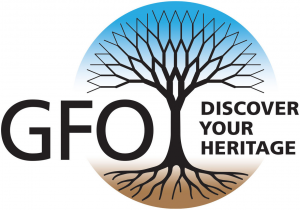
| THE GENEALOGICAL FORUM’s Thursday Evening E-News Edition February 20, 2020 |
| Curious about the status of your GFO Membership? We’d love to have you as a GFO Member! |
| gfo.org | 503-963-1932 | info@gfo.org Be sure to check the complete GFO CALENDAR. Also, don’t miss the current issue of The Forum Insider |
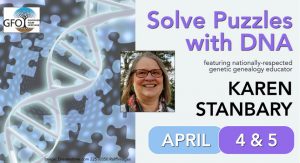
| DNA has become the hot topic in genealogy and we’re bringing an expert to Portland to help you make sense of it all! Join us for our 2020 Spring Seminar, “Solve Puzzles with DNA,” on April 4 & 5, with nationally-known genetic genealogy author and educator Karen Stanbary, CG®, MA, LCSW. |
| The Saturday, April 4 classes will be held from 10:00 a.m. to 4:30 p.m. at Portland’s Center for Self Enhancement (SEI). Seats are still available. . Saturday classes include: ▪ Tips to Manage Conversations about Unexpected DNA Results – handle challenging discussions both before and after DNA testing ▪ The DNA You Need – It’s Not Always Who You Think – Results from a 4th cousin once removed you’ve never met may tell you more than another aunt or uncle ▪ Avoiding Common Mistakes When Working with atDNA – Learn common errors in atDNA interpretation and strategies to avoid them ▪ Spit and You Shall Find! Autosomal DNA Identifies a Charming Scoundrel: Walk through research planning, evidence analysis, correlation and proof in a fun case study If you register by Feb. 29, the cost for GFO members for this full day is just $45 and for non-members, $50. |
| The Sunday half-day classes on April 5 will be held at the GFO from 9:30 a.m. – noon. This session is already 3/4 full. Sunday includes two complex case studies demonstrating a wide variety of research strategies at every point in the planning, analysis and correlation process. One unknown parentage case and one distant ancestor case illustrate the integration of evidence from paper and DNA sources to prove genetic relationship conclusions. Early registration price for this half-day is just $25 for GFO members and $30 for non-members. Download the Seminar Flyer for more details. Take advantage of those Early-Bird Registration prices! On March 1, all prices will increase by $5. This is a great opportunity to learn more about solving those genealogy puzzles with the use of DNA. |
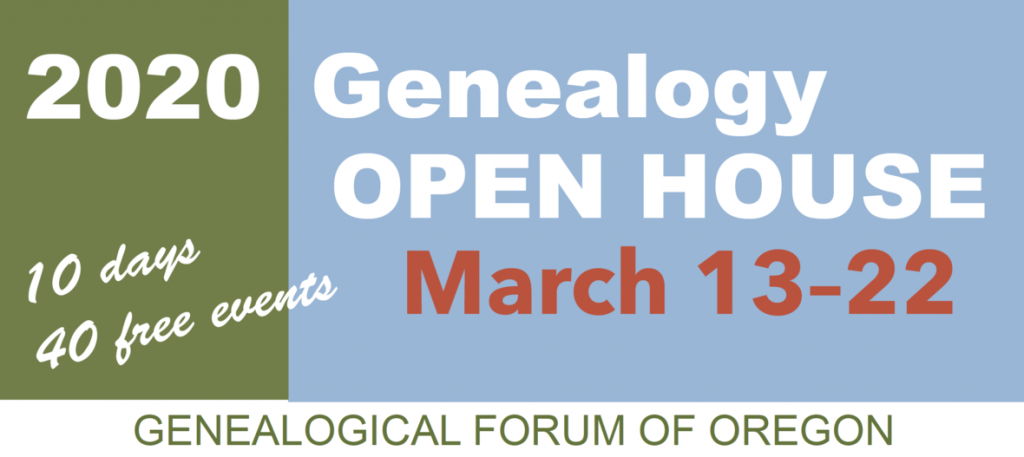
| Who doesn’t like a free genealogy conference? Save these dates for the 2020 GFO Genealogy Open House: March 13-22. Over these 10 days, the library is free to the public and everyone is invited to all classes. Of particular note: Friday, March 13: Beginners Day Saturday, March 14: DN Day, Sunday, March 15: Software Day Wednesday, March 18: Irish Day & an Evening with Special Guest John Schmal on Mexican Ancestry. |
| Save your favorite classes on your calendar! No registration required for any events. Just walk in. 42 events in all! It’s like having a free genealogy conference in your own backyard. Join us! |
| GFO Star Lynn Rossing |
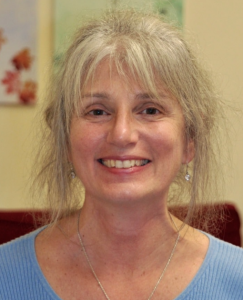
| Congratulations to our GFO Star of February, Lynn Rossing! |
| When a call went a few years ago for someone to lead GFO’s Illinois Special Interest Group, Lynn immediately volunteered. She expanded the group’s focus to include all the Great Lakes states and has been presenting topics of interest regularly ever since. Lynn has moved away from Oregon now, but we would like to recognize her for the work she’s done as a SIG leader, and as an Research Assistant. Thank you Lynn! |
| GFO Needs Your Help: Marketing and Grant Funding |

| Do you have experience in marketing, finding sponsors, or applying for grants? The GFO is looking for two or more volunteers to lend a hand with these vital functions. The GFO is small nonprofit run entirely by volunteers. To be really blunt, our president is wearing too many hats. He, and we, need help. We’ve long taken pride in being an all-volunteer organization without a single paid staff member. That can make it difficult to spread the word of all that we offer (52,000 holdings, 150 free classes every year, etc!). Marketing entails maintaining our Facebook page, submitting our events to a variety of websites, and producing occasional press releases. It’s time to think a bit bigger; for that we’ll need some grant funding. This is an area where we really need the help of someone with some experience. Or, perhaps you’ve helped find sponsors for small local events. Our seminars could definitely benefit from with help in this area. Please contact Vince Patton at president@gfo.org if you can lend a hand. Together, we can expand knowledge of GFO’s wonderful resources and remain relevant in this modern era. |
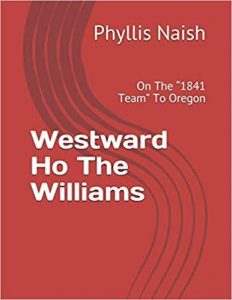
| GFO Member Authors Book about Oregon Pioneers, Donates to GFO |
| We were so pleased to hear from Phyllis Naish the other day. She finished her book, Westward Ho The Williams: On The “1841 Team” To Oregon, and she’s generously offering to donate 10% of the sale price for any copy that a GFO member or friend buys. |
| For the GFO to get the donation, you’ll need to send a copy of the receipt to Phyllis at pnaish@aol.com. She asks you to please mention the GFO in the email subject line. The book offers a “daily view of the pioneers on the 1841 wagon train from Missouri to Oregon. It shows how they lived and what they endured through five long months of walking over 2000 miles in the heat and cold.” It’s available on Amazon. Also, please don’t forget to shop via smile.amazon.com and set the GFO to receive a donation each time you shop. |
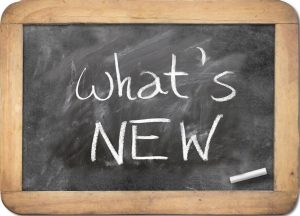
| News from the Library |
| New Digital Content • Boggess Family Association Newsletter • Boggs Newsletter • Diablo Descendants (Contra Costa County, California) • Roots ‘n’ Gold Dust (El Dorado County, California) |
| New Books • Albion, Washington • Colfax 100 plus • Ernst’s [John Ernst’s family history] • Jacksonville, Oregon: antique town in a modern age • Jacksonville: a living legend • Little Whale Cove and surrounding coastal headlands • Louie Simpson’s North Bend • Murder, morality and madness: women criminals in early Oregon • Railroads of the Columbia River Gorge • Records of the Particular Court of Connecticut, 1639-1663 • Settlers as conquerors: free land policy in Antebellum America • The frontier in American history • The Jesuits in old Oregon, 1840-1940 • The mill in the brush: a biography of Eugene F. Burrill, Oregon logger & lumberman • The Swedes of Oregon • The tall firs: the story of the University of Oregon & the first NCAA basketball championship • The way of duty: a woman and her family in revolutionary America • The Williamite confiscation in Ireland, 1690-1703 • When Silverton was young • Winthrop’s Boston: portrait of a puritan town, 1630-1649 |
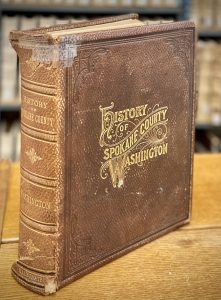
| In 1900, Rev. Jonathan Edwards published An Illustrated History of Spokane County, Washington. He assembled a truly impressive tome, running 726 pages. It includes photos and a fold-out map. Edwards writes in a preface, “We have conscientiously avoided indulging in eulogistic references, especially to the living, because we do not believe that to be the province of the historian.” |
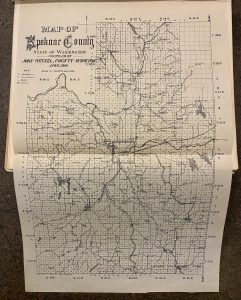
| With
a handsome leather cover and gilt page edges, this book as seen better
days. Its spine has damage and has been taped in places. However, all
the pages feel securely attached and there are no visible marks of any
kind inside. We have found other copies of this book selling online for $40 to $190. (Don’t be fooled by newer reprints which are cheaper). Our price to pick up at the GFO: $25 Our price to ship to you: $35 If you’re interested in this first edition of Pacific Northwest history, contact booksales@gfo.org. |
| Survey Results: Finding Cousins |
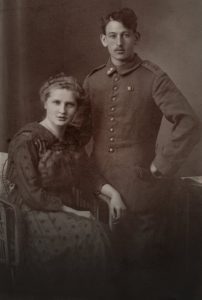
| A whopping 76.3% respondents reported that finding distant cousins has paid off, 15.8% replied “maybe,” and 7.9% said finding cousins reaped no benefits. Here are some of the responses, consolidated and edited for brevity: |
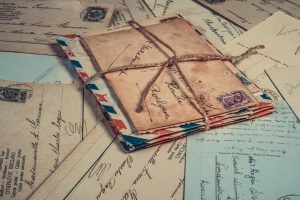
| Finding distant cousins has been wonderful. I now have a photo of my immigrant great-great-grandparents thanks to one cousin, and multiple photos of another great-great-grandfather from two others. Cousins have also helped me identify unknown people in photos I have. Holy Cow! I have found so many distant cousins! Jim B. contacted me about 1994 because of something I had posted on Rootsweb. We began sharing information which has helped to knocked down some brick walls! Over the years, Jim has sent me copies of his great-grandfather’s notes about his father and a huge package, which included a memoir written by a great-uncle or great-grand uncle, whose father participated in the Oklahoma Land Rush. The memoir went into great detail. I learned more about the Oklahoma Land Rush than I would have reading history books. Best yet, the memoir mentioned Jim’s ancestor coming to Oregon and Washington and visiting his favorite aunt, my great-great-grandmother. Years ago, I made contact with my great-grandmother’s niece. She was in her late 80s then, and she told me that she had a painting hanging on her wall of her grandparents on the day they were married. (That would be the photograph of my great-great-grandparents!) I learned that my 3rd great-grandfather was married twice. This solved a lot of questions when I found what turned out to be additional children. |
| For sure. Years ago, through the RootsWeb mailing lists, now through DNA. I’ve found cousins in Ireland, England, and Germany. The most recent connection was via DNA that broke through a 20+ year brick wall. I’ve found distant cousins right at the GFO library! I go to meetings every month for the French-Canadian SIG, and we all share common ancestors. The first time I attended, I learned that one woman’s last name is the same as my grandmother’s maiden name. Although that common ancestor was quite a few generations back, I was able to find that we connect in about 18 other places on our pedigree charts. So how has it paid off for me? My distant cousins are my friends! I’ve spent time visiting cousins all over the country. They have helped me break through some very difficult brick walls. Many of them are good friends now … especially my 96-year-old 3rd cousin, twice removed, from Colorado Springs. We learned a great deal of information about their lives and interests and a relevant Family Bible. But mostly we have met a bunch of really neat and interesting people and have become good friends with several. |
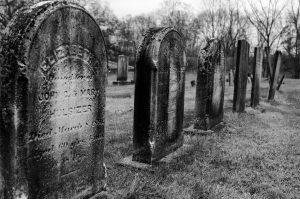
| Corrections to the location of collateral lines. Sharing of photos (both ways) of ancestors. The burial location of 2nd great grandparents. I could go on and on. I met a very distant cousin that sent me a photograph of my 4th great grandfather… wow, just brought tears to my eyes. Even closer cousins who have taken DNA tests at ancestry.com have been beneficial. Some cousin matches go way back to the 1600s. Having a well-established personal family history database is essential to determining how we are all related. I just wish I had more time to spend on this work. |
| New Survey: Cousin Bait |
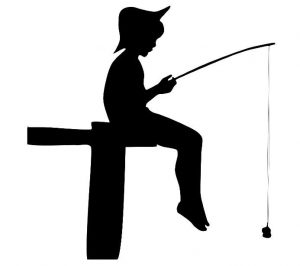
| Having established that finding cousins can be very beneficial, how do you go about finding them? Do you use “cousin bait?” What bait do you use, and has it been successful? |
| This week at GFO … Saturday, February 22nd DNA for Beginners 9:00 a.m. – 12:00 p.m. This presentation will help testers use a spreadsheet for genetic genealogy at the beginner level and help you use Half-identical Regions to discover the common ancestral couple you share with your DNA matches. Emily will discuss downloading the matches and segment lists from the major DNA testing companies and how to use a spreadsheet to organize the information to connect to a common ancestor. Herb Femling, our local expert on spreadsheets, will answer any questions you have at any level. Download the handout, here. If possible, download your Matches segment lists before class in case you have questions for Emily and Herb. Send questions on spreadsheets at least three days prior to the meeting. Email them to Emily at dna@gfo.org. Sunday, February 23rd An Advanced Excel Workshop Tutorial 9:00 a.m. – 12:30 p.m.* Professional genealogist Mary Kircher Roddy, CG® presents a half-day workshop for experienced spreadsheet users who want to learn more tricks to utilize spreadsheets in genealogy. Including incorporating color in worksheets, splitting columns, wrapping text, freezing panes, sorting, filtering, and more. We will discuss work-arounds for date issues in Excel. We’ll also cover importing data from websites including Ancestry.com, FamilySearch.org, and other sites. Participants should bring their fully charged laptops loaded with Excel. *Note this class starts at 9 am sharp, earlier than normal and runs longer than usual to 12:30 p.m. Registration for this event is closed – Workshop is full. Wednesday, February 26th PMUG College: Mac Photos 101 6:00 – 7:55 p.m. To register: Call 503-228-1779; Email: college@pmug.org. Bring your Mac/iPad to participate with instruction. If you would like additional info for attending this class, please email us. Free to GFO and PMUG members. GFO Library Open Late to 8:00 p.m. |